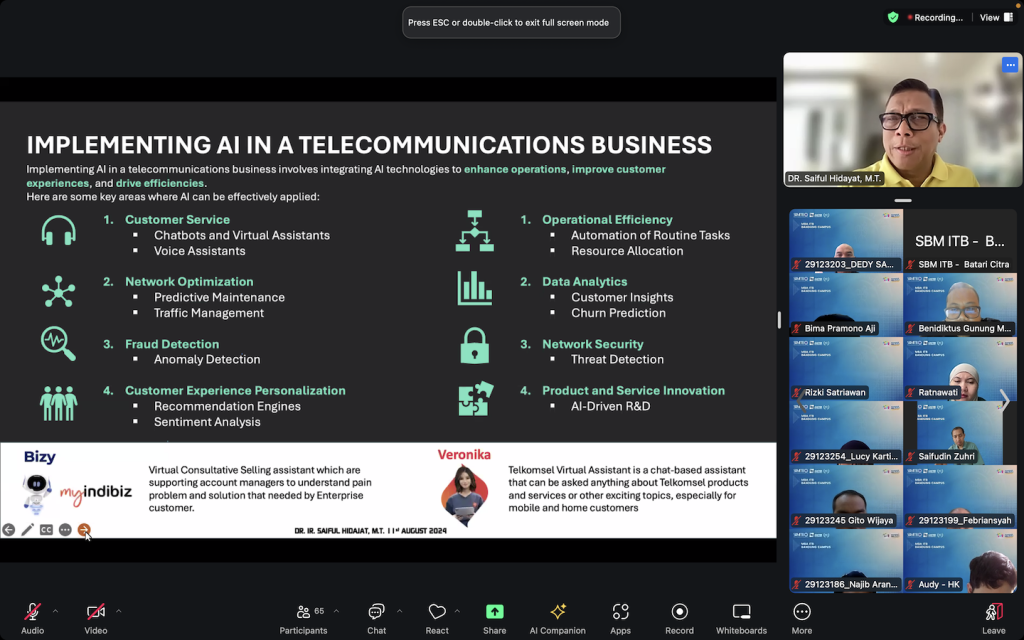A fundamental difference exists between the human brain and artificial intelligence (AI). With its 86 billion neurons and 100 trillion parameters, the human brain effortlessly recognizes patterns, controls actions, and possesses consciousness. In contrast, machines or AI can only follow programs created by humans and lack consciousness.
Despite its limitations, the potential for AI in business is vast. For instance, ChatGPT can only repeat words and sentence structures it has learned without truly understanding them. The challenge lies in the high computing performance, more significant memory, and increased power required to operate AI in business, making it less efficient than the human brain. However, the potential for AI to revolutionize business processes is immense, offering a promising future.
This perspective was shared by Dr. Saiful Hidajat, M.T., Vice President of Business Performance Management at PT Telkom Indonesia, during a guest lecture for MBA students at SBM ITB (11/8). The strategic management, innovation, and digital transformation expert discussed “Understanding AI’s Potential in Business.”
According to McKinsey’s analysis, Saiful noted that almost all jobs today have aspects AI can automate. However, very few can be entirely replaced.
AI has the potential to enhance employment by automating tedious and repetitive tasks, allowing workers to focus on more creative aspects of their roles, such as using prompts to generate complex software code.
Given this context, Saiful emphasized that students should prepare to face the challenges and opportunities that AI presents in the business world. AI will not immediately replace human roles; rather, it will demand humans in substantive, non-repetitive roles, making it crucial for students to equip themselves with the necessary skills and knowledge.





